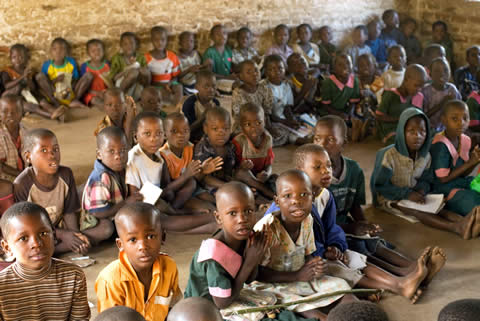Education is often hailed as the key to unlocking the potential of any society. It is the bedrock of progress and development, providing the skills and knowledge needed for individuals to thrive and contribute to their communities. However, in many developing nations, including Nigeria, the promise of education is often unfulfilled due to a lack of resources and infrastructure. In particular, the absence of basic teaching aids in primary and secondary schools has a significant impact on the motivation and academic performance of students. This blog post explores the negative effects of the lack of teaching aids in Nigerian schools and calls for urgent action to address this critical issue.
Education is a fundamental right that should be accessible to every child, yet the reality for many pupils and students in Nigeria is far from this ideal. The lack of basic teaching aids in primary and secondary schools across the country has been a major issue for years, with no clear solution in sight. This situation not only affects the quality of education provided but also undermines the prospects of young Nigerians.
The absence of chairs, tables, and boards in many public schools means that pupils and teachers are forced to improvise with inadequate resources. Some students sit on the floor while others have to take their lessons outside due to the dilapidated state of their classrooms. This lack of basic amenities creates an uninviting learning environment that can impact the motivation and concentration of students.
Moreover, teachers are often left unpaid for months, and they are not provided with the basic tools they need to teach effectively. The absence of chalk to write on boards means that students miss out on important information, and this further undermines the quality of education. The lack of funding for education by the government has led to an unending cycle of poor education, poor performance, and poor prospects for Nigerian youths.
It is crucial that the Nigerian government recognizes the importance of prioritizing education and invests in providing adequate resources for primary and secondary schools. International aid should also be sought to alleviate the financial burden of the government in ensuring that every Nigerian child has access to quality education.
In conclusion, the lack of teaching aids in Nigerian schools is a multifaceted problem that requires urgent and sustained attention. Providing basic amenities, such as chairs, tables, and boards, as well as ensuring that teachers are paid on time and equipped with necessary teaching tools, is crucial in enhancing the quality of education in the country. By investing in education, the Nigerian government can empower the future generation with the knowledge and skills they need to thrive, and in turn, drive economic growth and development. The responsibility of ensuring that every Nigerian child has access to quality education rests on all stakeholders – government, private individuals, and civil society. It is only through concerted efforts that we can build a better and brighter future for Nigeria.


1 Comment
Nice